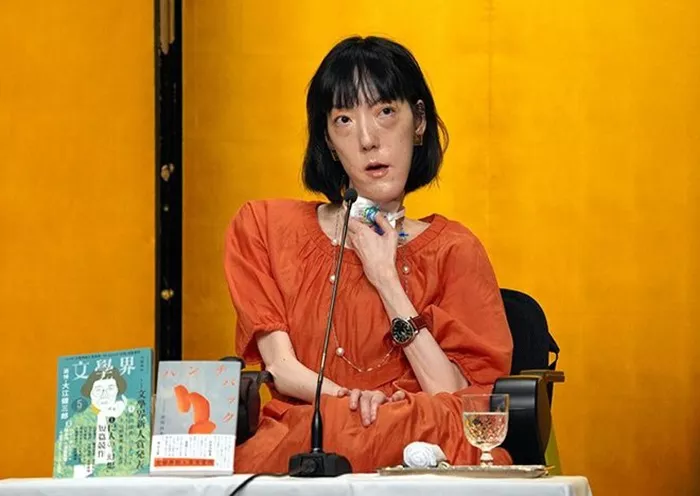Saou Ichikawa made history in July 2023 when she became the first author with a severe physical disability to win the Akutagawa Prize, one of Japan’s oldest and most prestigious literary awards. At the award ceremony, the 45-year-old novelist, who uses a wheelchair and a ventilator due to congenital myopathy, ascended the stage via a ramp—marking a significant milestone in accessibility and representation.
Ichikawa’s prizewinning novel, Hunchback, confronts ableism head-on, delivering a powerful critique of what she calls “ableist machismo” in Japanese society. The book centers on Shaka, a character who, like Ichikawa, navigates life with a major disability, challenging stereotypes and societal invisibility faced by people with disabilities.
“I wrote this novel because there have been so few disabled authors,” Ichikawa said through a speech synthesizer. “Why did it take until 2023 for the first to win? I want people to think about that.”
Ichikawa’s journey to literary acclaim was long and challenging. She was removed from school at 13 after her condition necessitated ventilator use. Determined to reclaim her voice, she began writing in her twenties, publishing over 30 romance and fantasy stories for young readers, though her manuscripts were repeatedly rejected.
Her perspective shifted when she enrolled in an online degree program at Waseda University in 2019. There, she recognized the lack of authentic disability representation in literature and decided to tell her story through Hunchback. The novel not only highlights the daily realities of living with a severe disability but also explores the character’s sexual desires and fight for autonomy, aspects rarely portrayed in Japanese literature.
“Disabilities have long been hidden as shameful in Japan,” Ichikawa explained. “In the past, pregnant women were told to show mirrors to ward off evil spirits when passing people with severe disabilities.”
Despite setbacks, Ichikawa continued to write on her iPad and never anticipated that her first serious literary work would receive such national recognition. “When I heard I won, my mind froze,” she recalled. “I think it was because of my novelty, but I hope this opens doors for others.”
Her victory coincides with growing awareness in Japan about ableism—the systemic bias favoring able-bodied individuals. Since 2019, two severely disabled politicians have been elected to the Japanese Parliament, prompting accessibility improvements in government buildings.
“Her win has made visible the invisible barriers faced by people with disabilities,” said Yuki Arai, literature professor at Nishogakusha University. “Hunchback is a powerful protest against a society that excludes disabled people.”
One of the novel’s most quoted passages features Shaka’s frustration at not being able to hold a physical book, symbolizing the broader challenges faced by disabled individuals. “Able-bodied Japanese people have probably never imagined a hunchback struggling to read,” the character says.
Ichikawa’s early childhood was marked by physical activity, including dance and gymnastics, before her condition worsened. Her parents supported her with travels abroad and a specially built home by the coast to maintain her quality of life.
Though Ichikawa experienced dark periods, including recurring nightmares symbolizing fear of abandonment, she persevered. With Hunchback now translated into English and gaining international attention, she plans to continue writing prolifically to challenge stereotypes and advocate for inclusion.
“I intend to write spontaneous novels rapidly over the next few years,” Ichikawa said. “My goal is to break preconceptions and prejudices.”

